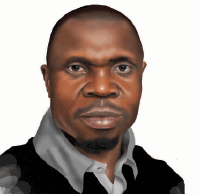Every new book comes to me like a new baby. I can’t wait to read it. A good book is like an invention. Or like Pablo Neruda has said, a great book that comes from a great thinker is a ship of thoughts, deep-freighted with truth and beauty.
When I buy a book, whether new or old, it’s like buying a bundle of ideas. I value books. I desire books. I wish I could add to that a voracious reading appetite. I don’t think I am anything near being a good reader. But I know a good book when I see one.
Ankana Dey Choudhury has been quoted as saying that there is no better smell than that of a new book, or no better texture than that of the yellowing pages of an old book. How true!
No doubt, a book is a friend and a loyal partner in the development of the intellect. Ernest Hemmingway once said “there is no friend as loyal as a book”. Thomas Jefferson screamed: “I live for books.”
Or as captured by Charles Eliot in 1896: “Books are the quietest and most constant of friends; they are the most accessible and wisest of counselors, and the most patient of teachers.”
Add that to Susan Wiggs’ audacious belief that “you’re never alone when you’re reading a book”, then you’ll understand what Emilia Fox meant when she said: “I never feel lonely if I’ve got a book” because books are like old friends; “even if you’re not reading them over and over again, you know they are there….”
Some people value books the way others value meals. In 2007, I interviewed Rasheed Gbadamosi. As I walked into his book-lined study that day, I had to blink twice to be sure I wasn’t in a public library.
During that visit, we spent a longer time discussing literature and American politics than we spent on the interview. That encounter constantly reminds me of Thomas Macaulay’s queer desire to be poor “in a cottage full of books than to be a king without the desire to read”.
Have you ever noticed that when you fly across cities or even continents, sometimes you won’t feel the turbulence rocking the aircraft if you have a good, engaging book to dig into? It happens.
Why should people read books at all? William Channing says “it is chiefly through books that we enjoy the communion with superior minds… In the best books, authors talk to us, give us their precious thoughts, and pour theirs into ours…”
We must read because books are the compasses, telescopes, sextants and charts which other men have prepared to help us navigate the dangerous seas of human life (Jesse Lee Bennett). And books are the shoes with which we tread the footsteps of great minds (Anonymous).
On Tuesday, I attended a book presentation by a friend, Ukoha Kalu. The 347-page book titled Blast from the Past –Aftershocks of the Nigeria Civil War is a work of fiction aimed at re-telling the story of the 30-month war.
From the quality of packaging, I believe that the book, edited by Chidi Amuta, would make a good reading. What pained me, however, was the re-affirmation of the popular saying that Nigerians don’t read.
I guess, if that was a political event, the premises of Kapital Club, Asokoro in Abuja would have been packed full with colourful participants. That made me sad.
An idea was born; but was not celebrated. An invention was made, and almost nobody clapped. A compass packaged in prose was released, still people prefer to walk and fly without it. What a world we live in! What a mentality we have developed!
But I won’t forget what Bayo Ojo, the former Attorney-General and Minister of Justice, said. He recalled that shortly after leaving office, he was often referred to as “immediate past minister”. After a while, it changed to “former minister”. As time passed, he became “ex-minister”. Today, he has become “one-time minister”. It was a lively joke.
But unlike a one-time minister, a book, according to Lawrence Clark Powell, is the most patient of all man’s invention. “Centuries mean nothing to a well-made book. It awaits its destined reader, come when he may, with eager hand and a seeing eye.”
What would a civil war, which ended 44 years ago, mean to the present generation, if not for books? Such history is captured either in fictional prose or as historical facts, in a phenomenon called book.
Books are the legacies that a great genius leaves behind to mankind, which are delivered down from generation to generation as gifts to those who are yet unborn, according to Joseph Adison.
My intention today is to awaken in somebody the desire to read because books are carriers of civilisation.
Without books, history is silent, literature dumb, science crippled, thought and speculation at standstill, says Barbara Tuchman. Books are engines of change, windows on the world, lighthouses erected in the sea of time.
Let me end with the words of Keri Douglas that “books are whispers of the past heard well into the future”. When a people stop reading, they literally stop growing, or, as Ray Bradbury has said, you don’t have to burn books to destroy a culture; just get people to stop reading them.




